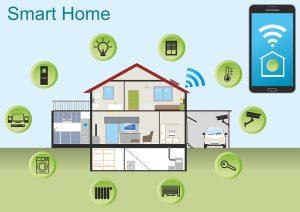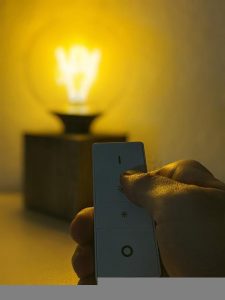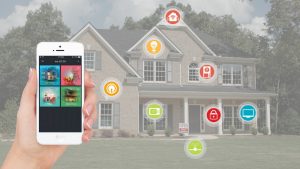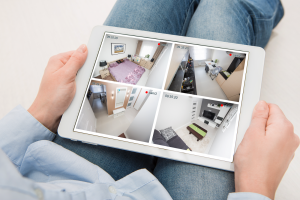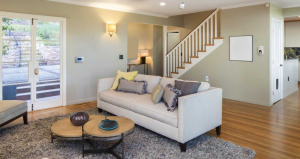Why Entrepreneurs Should Enter Smart Home Market Now
- March 30, 2022
- by Ezlo Admin
When Tech Giants Haven’t Still Conquered It.
In the 1980s we got wall phones in our kitchens. In the 1990s desktop computers started dominating our homes. The 2000s started the era of smartphones and mobile phones.

The 2010s are about the Internet of Things and smart home technologies in particular. And if you’re considering when to start a business in this niche, now is the best time to do it.
Now — while it’s not too late.
Yes, the market is already filled with home automation devices like smart toothbrushes, fridges, locks, and doorbells. But they mostly seem to be too unreliable and too insecure for wide adoption, which still let the industry hold the doors open for new entrepreneurs and ideas.
Besides, some forecasts assume that we will have even more new technologies coming into our everyday life, like force-detecting floors to notice walking problems of elderly people and smart toilets to provide biochemistry analysis of one’s urine.
Overall, with only 1% of households in the U.S. owning at least one smart home device, the home automation market remains in its infancy and offers a lot of opportunities for entrepreneurs.
This is Not About Forecasts
Most pieces describing the bright future of the smart home industry often refer to forecasts, many of which report numbers that are too general to make any conclusions. For instance, the latest Zion Market Research dated August 2017 shows the market will grow by 14.5% annually up to 2022.
While this is an extremely positive trend, it lacks information on the risks and pitfalls you may bump into in your business. Every day we get news on insecure smart home products and startups failing to meet their expectations. This might disappoint you, but from our perspective, the manufacturers often hurry up to be the first on the market, and eventually, don’t spend enough time on meeting user expectations and polishing product security. As a result, they either fail or appear to be unable to get a significant market share.
The smart home market needs entrepreneurs who will focus on bringing value and addressing real-world problems and pains with all due diligence and thoroughness.
Gideon Kimbrell, an entrepreneur, and co-founder of Enlist says a pretty same thing. He is sure that to succeed in the home automation market you need to ‘establish the right approach to security and data sharing and back it up with truly innovative and robust practices’.
While forecasts analyze the market, you can also take a look at the world as a whole. The planet’s population is constantly growing, and this growth has become explosive in the 21st century. And the more people use the city infrastructure, the more technologies we will require to optimize its usage.
Energy efficiency, time economy, and everyday safety will get higher importance and urgency over time, and this is where home automation devices can still make the revolution. Imagine window shades adjusting to daylight intensity, sleep cycle optimizers (e.g., see Moona), air cleaners, and more.
Besides, while the market is still young, it already offers tools to help you build your next smart home device. Various IoT platforms, frameworks, and companies are now aiming to simplify the process of building a new product.
For instance, we at eZLO offer an eZLO platform aimed to let product owners focus on the business side of the process while we take care of all technical issues including firmware development, cloud infrastructure, and intercompatibility.
Tech Giants Are Not a Threat
But what about Amazon, Google, Apple, and other tech giants who already entered the smart home market with their voice assistants and other technologies? They have all the opportunities to release a product that will hit markets worldwide much more quickly than you.
Well, while tech giants are indeed aimed at creating an ecosystem of devices at your home with a central device called ‘hub’ or ‘assistant’, you can still supplement them with your innovative products.
If you want to build, say, an advanced motion sensor, you can make it compatible with Apple HomeKit-enabled devices, Amazon Alexa, and other smart home solutions to help it get into your users’ homes with no unwanted hassle.
Besides, it’s still too early to say who’s going to top the list and will have its hub\assistant installed in most households. You can even come up with your own central device or take the eZLO hub and white-label it to include into your complete smart home solution along with your own device. (White-labeling the eZLO hub is an optional part of our eZLO partnership offer).
The newest Bluetooth Mesh technology allows devices to communicate with each other without a hub and currently seems to be very appealing thanks to its compatibility with most currently existing Bluetooth-enabled devices. Following this technology, you can create a device that will work on its own and won’t require hubs to offer full functionality but will still be able to interact with users’ smartphones and other smart home solutions.
Bottom line
Although home automation technologies as we know them today have been present for more than a decade already, the market still waits for players who will be able to combine innovation with caution and attention to users’ expectations and fears.
While tech giants are focused on creating the most advanced voice assistants and internet-enabled devices, it is up to entrepreneurs to come up with solutions that can indeed improve the way we live in terms of safety, efficiency, and, ultimately, comfort without compromising our privacy and requiring unreasonably high tech literacy.
